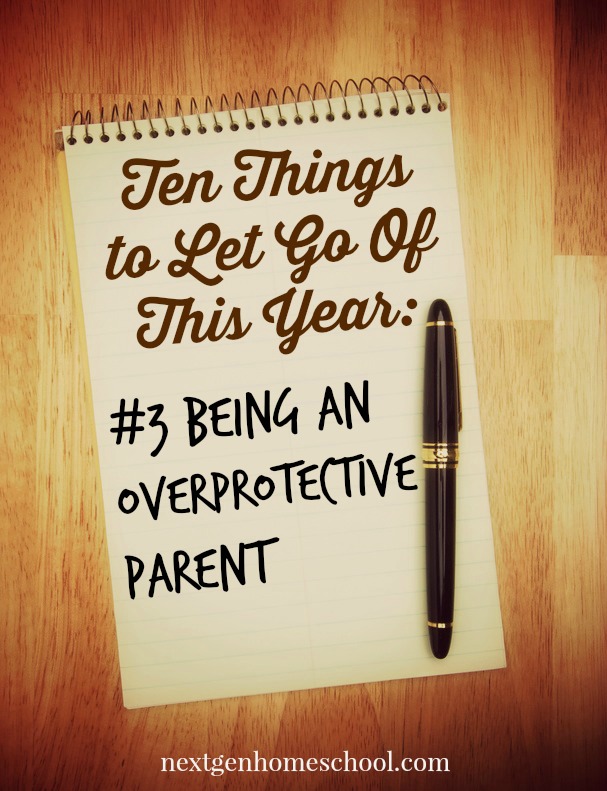There seems to be an epidemic of helicopter parenting in our country today… Or maybe it’s just in my suburban neighborhood. But I also notice it a lot in the homeschooling community. In fact, for many parents, being able to better protect their children is a major reason they decided to homeschool.
Although I agree that it is our responsibility as parents to protect our children physically as well as emotionally, I think it can be taken too far. Our children also need to learn how to fall, how to deal with confrontation, how to make decisions and then live with the consequences.
My husband would say that I fall into the overprotective category, but compared to many moms I know, I’m not as protective as some. For example, my 9-year-old son is allowed to go fishing at the pond at the end of our road by himself. He Skypes his Minecraft friends, many of which we don’t personally know. However, he does keep his computer in the public game room so I can overhear his conversations. Both of our boys play outside in our yard without my constant supervision, although I can see them through my windows.
Basically, I think I am a moderately protective mom. Through the years, I’ve learned to let my boys be boys and also reign them in when real danger is imminent.
This wasn’t the case when my daughters (now 21 and 19) were young. With them, I was a lot more protective of their emotional boundaries. Looking back, I see how I wanted to protect them from the consequences of bad choices, but I’ve realized that my overprotection wasn’t helping them grow or learn from their own mistakes. As they grew into young adults, this became more and more evident. It has been especially hard for me to step back and let them make choices that I know will cause them pain.
I am learning that I have to trust God to work in my daughters’ lives now. As parents, we have taught them right from wrong, taught them God’s Word, and trained them up to the best of our abilities, trusting in God to fill in the gaps. However, I can’t live their lives for them and make the choices I think are right. I have had to learn to back off and allow them to make decisions on their own.
Struggling through this “letting go” transition with my older daughters has taught me how to let go of being overprotective with my sons now. I am realizing more and more that I can only protect them so far. No matter how hard I try, I can’t be there for every boo boo, I can’t intervene in their fights, I can’t make the right choices for them, and I shouldn’t try to protect them from every consequence. They need to learn some real-life consequences now.
Of course, as parents we can help our children learn through the consequences. We can still point them to the One who will always be there for them. Not that we don’t do those things even when they think they are grown up, but it is easier to direct them when they are still under your roof and protection.
I am learning to let go of overprotection and trust God with my children more — after all, they are His, He loves them even more than I do and He has a plan for their lives. And His plan might even include things that I would consider dangerous. As Harvest Ministry’s Ann and Jon Dunagan have taught me through their encouragement at the Teach Them Diligently Convention, we are training our children to be “arrows” for God: Arrows are meant to be shot out, not to land softly by my side, and to do damage to the enemy. Our children are meant to do daring and dangerous things for His Glory, and He will protect and guide them as they learn to listen to His voice.
Do you struggle with finding a balance between protecting your children and being overprotective? How did the desire to protect your children affect your decision to homeschool? What have you learned to let go of in this area? Join us this month at NextGen Homeschool as we discuss Ten Things to Let Go of This Year, and join the conversation! Find the series here.

